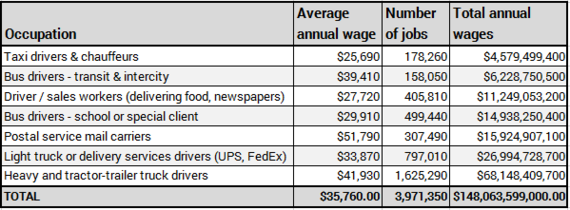Yeah, I think you got close to the quick with your reply. This is to a large extent about people people and non-people people. Notably many people who have been successful in the technology industry could reasonably be diagnosed on the autism spectrum. This is something that perhaps should be contemplated by the wider community. Those individuals who have and are acquiring vast amounts of money and are shaping in a profound way the future life experience of the entire planet largely understand people as things. It is highly disturbing to contemplate such a notion.
From my personal life experience, if I had been given some of the technological choices that have emerged or are emerging now earlier in my life, I would have chosen them and been a much happier person as a result.
To my way of thinking, if children are going to school to learn, then the learning experience should be maximized. Everything possible should be done to ensure that learning occurs to the greatest possible extent. This is obviously not what happens at school. In truth for many students attending school the educational experience might be one of their least prioritized items on their list. This, in spite of the massive investment by the community in education. I demonstrated the potential of online to myself clearly over the last few years while taking online university courses. I have been truly amazed at the extreme level of achievement that is possible when being left alone with a textbook and internet resources. If the community wanted to launch a golden age of academic achievement and scientific breakthroughs not much more would be required. All the money spent on Olympic sized school swimming pools and all sorts of other items could be safely reinvested in other government projects.
Also it is true that I share at some level the inner rage that many movies (especially American) show of people who felt helpless by their life circumstances and considered violence their only option to communicate that rage. As I proceeded through the social structures (in particular education), I could just feel the oozing sense of total indifference of my person-ness and the extraordinary sense of entitlement by people who were in what is almost a total monopoly. I had no idea how to respond to this situation, though now that we have moved into the 21st Century much of my response and ways I could have coped better with circumstances have become clear to me.
For example, my genome scan revealed some truly revealing results. I really do not know how the regular school system could cope with revelations about my genome and the implications that my genetics would likely have on my perception of the school social environment. Making these disclosures would have likely profoundly changed my life experience. Even my own family has had difficulty coming to understand the implications of our genetic variants. The whole notion that there is a universal normal psychology that can be assumed is going to be quickly discarded as the wave of sequencing now underway is extensively analyzed. Matching genetics with the right environments is going to make for a much happier world.
I would also feel so much more empowered. The minor skirmishes and cool indifference do still linger in memory. It was not clear to myself back then how to cope with such incidents. It is sure much clearer now. I would not allow many if any such incidents to occur if I were sent back in time. I could now well imagine myself staring down some bothersome incident that lurks in my memory from the past and just imagine saying to myself back then:
"Go right ahead! Bother me! I am not going to tell you this: I will just let you figure it out. This is forever. I do not have to be here. I have so many choices that technology offers me. This is the last time I will ever be bothered again. Auf Wiedersehen!"
It is so empowering. The individual can now in their own way bring down grossly ineffective and dysfunctional organizations because there are all these choices. People truly do have this magnitude of power in the modern world. It would probably not take that many students saying "I am out of here, I want to go online" before the current system took note. It would soon become clear that the entire dysfunctional system could collapse. When you consider all the school shootings in America would it really be such a bad result? The home school movement did experience massive growth after yet more horrific shootings occurred in schools. People do have choices.
Most of the choices that have emerged are much more effective than what has ever existed. If the current socio-economic structures do not tune in, they will become completely irrelevant. Consider your example of shopping for enjoyment. Many people would likely not find shopping on average to be fun. It is a necessity: they are trapped in doing something they have to do. It is not difficult to imagine that my mind experiment noted above will soon apply to most of our experiences. Customer service will not be said in an ironic oxymoronic sense. If stores ever want to have customers again, they will need to accept the mental challenge and return it with their own unspoken message
"We are hear to help you. We will always value you as a person and a customer of our store. You do not have to be here but we want you to be here and we welcome you. We know you have many technological choices, though let us prove to you that we can do better than any technology."
This is the only possible way that our society will be able to cope with this approaching way of technology. Ironically it will greatly humanize our lives. People who believe that they can continue the behavior of the past or are just indifferent will soon be unemployed.
Edited by mag1, 15 June 2015 - 03:57 AM.


















































